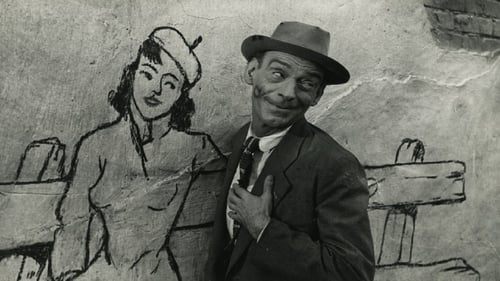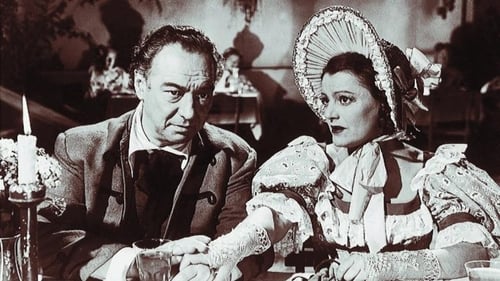Tibor Polgár
出生 : 1907-03-11, Budapest, Hungary
死亡 : 1993-08-27

Original Music Composer
Andras Vayda grows up in a turbulent, war-torn Hungary, where he procures local girls for the occupying G.I.'s during World War II. Disappointed by girls of his age, he meets Maya, a married women in her thirties, who tutors him in the lessons of love and romance. Maya is only the first of many mature women that Andras will meet through his teenage and young adult life.

The Pianist (as Tibor Polgar)
Andras Vayda grows up in a turbulent, war-torn Hungary, where he procures local girls for the occupying G.I.'s during World War II. Disappointed by girls of his age, he meets Maya, a married women in her thirties, who tutors him in the lessons of love and romance. Maya is only the first of many mature women that Andras will meet through his teenage and young adult life.

Music
An adaptation of a well-known novel by Hungarian writer Lajos Zilahy.

Original Music Composer
Most of her colleagues take Mária, the new teacher to be a communist party-worker, only Irma and the drawing teacher Zoli treat her kindly. Mária starts working with great enthusiasm, and her class learns to love her in a short time.

Music
Hungarian film.

Music
The poetic love story depicting everyday life from a micro-psychological aspect takes place in the 1910s. Sándor, editor of the local paper, serves as a foot soldier on Sundays, but spends weekdays playing billiard and courting women. One Sunday afternoon - in soldier's uniform - he meets Vilma, the beautiful maid, whose honesty and chastity turns the adventure to love.

Music
Judge Csanádi András makes a confession to his boss one night: he fell in love with the pretty, modern driver woman, Zenthe Judit in a fencing room. The girl suddenly returned his feelings. One night she confessed to him crying: she hit someone. The case was assigned to Csanádi, who wanted to investigate the circumstances meticulously despite his feelings. Thus the so far hidden life of Judit, which is bound to the past former world and its values is now highlighted. He is confused, asks his boss to absolve him from the assignment, but refuses to do so. Csanádi realises in the court room: Judit kept on telling lies, she played the lover for her own interest. The judge passed his crisis, he will deliver a fair sentence.

Music
On the Spring of 1945 the Jackson circus is heading towards the border with the clown Peti and Aida, the elephant. They have to play for the Hungarian Fascists, while Peti is hiding the Jew Annuska and Sanyika.

Music
The story, which takes place in the reform era, centres around Mrs. Déry, a legendary actress, who, along with her fellow actors and actresses, travels around the country to become the herald of the Hungarian language, performing in villages and towns up and down the land as strolling players, a woman who is not put off by the prospect of starvation and the dearth of a home to return to and security to live in.

Music
A Hungarian soldier returning from fighting in the Second World War marries the woman he believes to be the widow of a former comrade who he thinks died in the Prisoner of War camp in which they were held. The film was banned in Hungary because of its depiction of the controversial issue of Hungarian prisoners held by the Soviets.

Original Music Composer
A mysterious woman brings disaster to a small country town.

Music
Based on the Hungarian writer Ferenc Herczeg's novel written in 1894, this film takes the viewers to the past of Hungary. Professor Sergius (Elemér Baló) insists that he invented a machine that can fly faster than the speed of earth's rotation and this enables him (or anyone who travels with him) to fly back with it to the past; that is to travel in time. To prove this the professor promises the hand of his daughter Rózsi (Katalin Karády) and all his possessions to the one who is willing to try the 'space travel' with him in his machine. The romantic and adventurous Hungarian count Ákos Tibor (László Szilassy) finally accepts the challenge. For the count's luck before the time travel he attends a costume ball dressed as a Hungarian hussar. Because when they arrive in the past, people think that he is a far relative of the wealthy landlord whose field they landed. This is how the strange adventures begins for our 20th century hero in the world of the 18th century Austro-Hungary.

Original Music Composer
After having spent 22 months in prison, Viktor Pálos returns to his homeland, where he is going to be involved in the robbery committed by his relatives.

Music
András and Rózsi have been engaged for years now, but, given the absence of her certificate of baptism, they cannot get married.

Original Music Composer
Az Aranyember (The Man of Gold) was based on a novel by Jokai, at one time Hungary's foremost storyteller. Set in the early 19th century, the story revolves around Timar (Ferenc Kiss), a ferryman on a Danish tugboat. Rescuing the daughter (Marisa Kormos) of a Turkish nobleman from a watery grave, Timar is rewarded with the girl's hand in marriage. Now rich beyond his wildest dreams, our hero finds he is unsatisfied; it seems he has never forgotten his true love, flower girl Noemi (Anna Fuzes). Timar is forced to suffer mightily until he is finally permitted a tender reunion with the girl of his dreams.

Original Music Composer
Az Uj Foldesur (The New Squire) was based on a novel by popular Hungarian author Maurice Jokal, whose many works had previously been largely ignored. After the wars of 1848, a retired Austrian army officer "returns to the soil" as a gentleman farmer in Hungary in the 1850s. The old campaigner is the father of two daughters: One of the girls comes to a sad end thanks to the malfeasances of a handsome spy, but the other has a happier fate when she falls in love with a Hungarian POW. The underlying theme is brotherhood, as the formerly warring Austrians and Hungarians at last find a common ground. Az Uj Foldesur was nearly twice as expensive as the average Hungarian film -- but at $40,000, its budget was a drop in the bucket compared to a typical Hollywood production.












